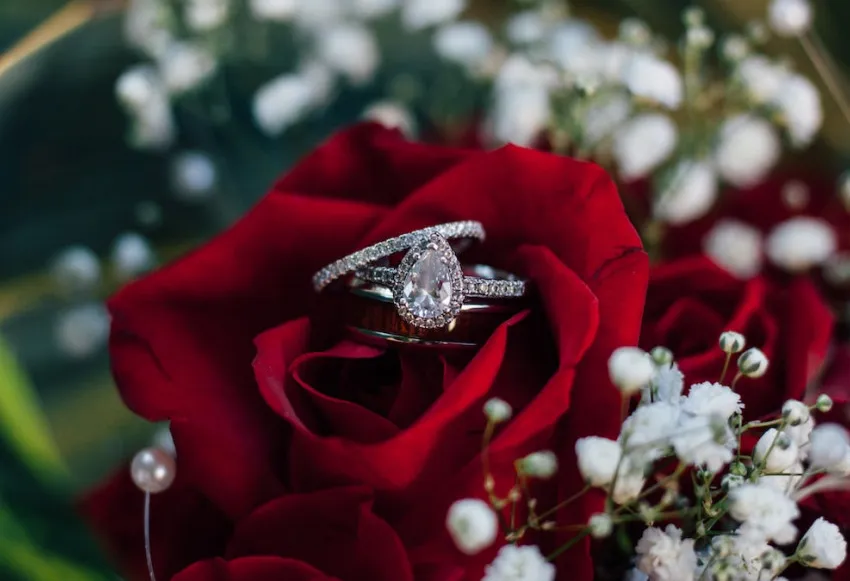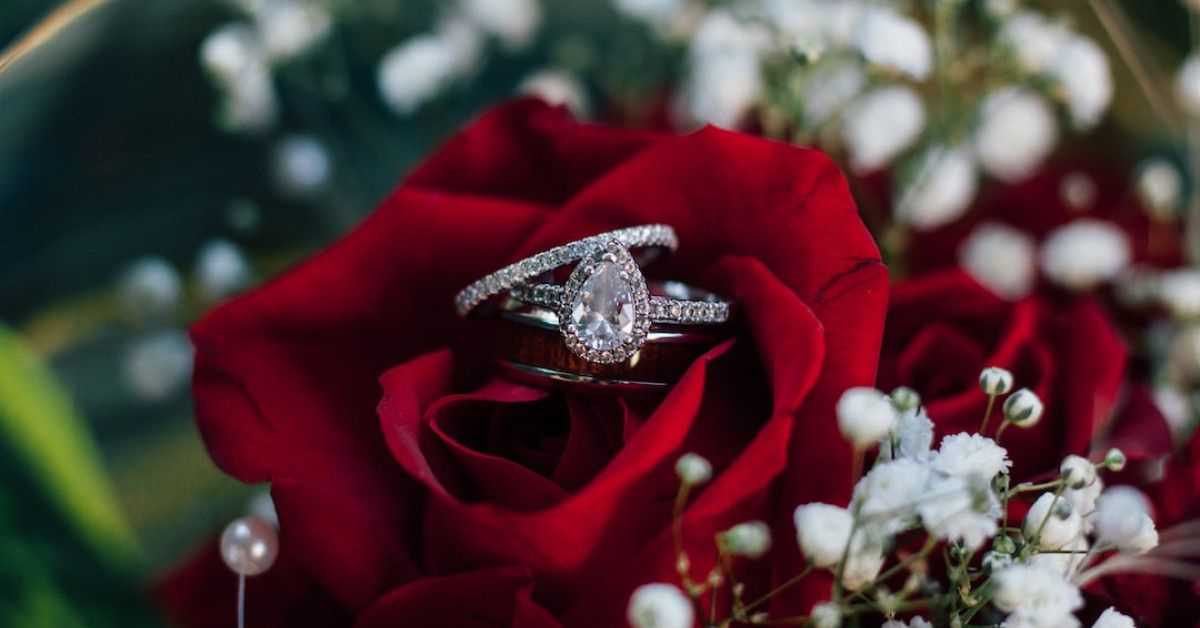Love is a powerful force that has the ability to touch our hearts and make a lasting impression on our lives. When it comes to expressing our love and commitment, there is hardly a gesture as powerful and symbolic as an engagement ring. With so many options available, it can be overwhelming to decide on the perfect ring metal that not only reflects your style but also stands the test of time. In this article, we will decode the best ring metal options for your engagement ring, helping you make a choice that will truly make a lasting impression.
The Significance of Ring Metals in Engagement Rings
Before we delve into the specifics of different ring metals, it's essential to understand the significance of choosing the right metal for your engagement ring. The metal not only determines the overall appearance and style of the ring but can also influence its durability, cost, and even symbolism.
The Symbolism of Ring Metals
Engagement rings are a timeless symbol of love and commitment, and the choice of ring metal can add a layer of symbolism to the piece. Here are some popular ring metals and the symbolism associated with them:
-
Platinum: Known for its rarity and purity, platinum symbolizes enduring love and luxury. It's a resilient metal that can withstand daily wear and tear, making it an excellent choice for those seeking a symbol of lasting commitment.
-
Gold: Gold has been a popular choice for engagement rings for centuries. It is associated with prosperity and wealth, but it also symbolizes love, purity, and eternity. Gold comes in various shades, including yellow, white, and rose gold, offering a wide range of options for individual preferences.
-
Silver: Silver is a versatile and affordable metal that symbolizes love, romance, and tenderness. It is a popular choice for those seeking a modern and understated look.
-
Titanium: Titanium is a lightweight and durable metal that symbolizes strength and resilience. It's an excellent choice for those with an active lifestyle or those who prefer a contemporary and unique ring design.
Factors to Consider When Choosing a Ring Metal
While the symbolism and aesthetics of a ring metal are important, there are other factors to consider when making your decision. Here are some key factors to keep in mind:
-
Durability: Engagement rings are worn daily and are exposed to various activities and environmental factors. Consider a metal that can withstand everyday wear and tear without losing its luster or shape.
-
Allergies: Some individuals may have metal allergies or sensitivities. If you or your partner have known allergies, it's essential to choose a hypoallergenic metal that won't cause any skin irritations.
-
Maintenance: Different metals require varying levels of maintenance. Some may require regular polishing or cleaning to keep them looking their best. Consider your lifestyle and the maintenance requirements of each metal before making your choice.
-
Budget: Engagement rings come in various price ranges, and the choice of metal can significantly impact the overall cost. Set a budget and consider the cost implications of different metals to ensure you stay within your desired range.
Now that we have explored the significance and factors to consider when choosing a ring metal, let's dive into the specific options available:
Platinum: The Epitome of Luxury and Endurance
Platinum, often dubbed as the "king of metals," is a popular choice for engagement rings due to its exquisite beauty, rarity, and durability. Let's explore the characteristics of platinum that set it apart:
-
Durability: Platinum is highly resistant to corrosion and tarnish, making it an ideal choice for those seeking a durable ring metal. The metal's density ensures that it won't wear down easily, allowing the ring to maintain its shape and strength for years to come.
-
Purity: Platinum is a naturally white metal, unlike white gold, which requires rhodium plating to achieve the same appearance. This means that a platinum engagement ring will maintain its color and luster throughout its lifetime.
-
Hypoallergenic: Platinum is hypoallergenic, making it an excellent choice for individuals with sensitive skin or metal allergies. It doesn't contain any alloys that commonly cause allergic reactions, making it a safe and comfortable option.
-
Density: Platinum is denser than other popular ring metals like gold, giving it a substantial feel and weight. This weightiness adds to its luxurious appeal and makes it a favored choice for those who appreciate a substantial and substantial statement piece.
Despite its many advantages, it's important to note that platinum does come with a higher price tag compared to other metals. However, its durability and timeless beauty make it a worthy investment for those looking to make a lasting impression.
Gold: A Classic Choice with Versatility
Gold has been cherished for centuries for its beauty and timeless appeal. It's a versatile metal that comes in various shades, including yellow, white, and rose gold. Let's take a closer look at what makes gold an enduring favorite for engagement rings:
-
Shades of Gold: Gold offers a wide range of shades, allowing individuals to choose the one that best suits their preferences. Yellow gold exudes warmth and traditional elegance, white gold offers a modern and sophisticated look, while rose gold brings a touch of romance and femininity.
-
Durability: Gold is a relatively durable metal, especially when alloyed with other metals to increase its strength. Pure gold, however, is too soft for everyday wear, making alloys like 14k or 18k gold the preferred choices for engagement rings. These alloys strike a balance between durability and purity.
-
Symbolism: Gold has long been associated with wealth, prosperity, and eternal love. The warm glow of gold makes it a beautiful symbol of everlasting commitment and devotion.
-
Availability and Price: Gold is widely available, making it more accessible compared to other metals like platinum. The price of gold can vary based on its purity and weight, allowing individuals with different budgets to find a gold engagement ring that suits their needs.
While gold is a popular and versatile choice, it should be noted that the white gold variant requires periodic re-plating with rhodium to maintain its color and luster. Additionally, individuals with metal allergies may need to ensure that the alloy used in the gold ring does not trigger any allergic reactions.
Silver: A Modern and Affordable Option
Silver is a versatile and affordable choice for those seeking a modern and minimalist look for their engagement ring. Let's explore the characteristics that make silver an attractive option:
-
Affordability: Compared to metals like platinum and gold, silver is generally more affordable, making it an excellent option for those with budget constraints.
-
Versatility: Silver's sleek and understated appearance lends itself well to modern and minimalist designs. Its neutral tone allows it to complement various gemstones and styles, giving individuals endless options when it comes to customization.
-
Symbolism: Silver has long been associated with love, romance, and tenderness. Its delicate hue adds a touch of elegance and sophistication to any engagement ring.
-
Maintenance: Silver does require periodic polishing to maintain its shine and prevent tarnish. However, with proper care and maintenance, a silver engagement ring can maintain its beauty for years.
It's important to note that silver is a relatively soft metal and may not be as durable as platinum or gold. Daily wear and tear can cause scratches and dents on the surface of the ring. However, for those seeking an affordable and stylish option, silver can be an excellent choice.
Titanium: A Contemporary and Unique Metal
For those looking for a distinctive and modern engagement ring, titanium offers a unique alternative to traditional ring metals. Here's what sets titanium apart:
-
Durability: Titanium is one of the strongest metals available, making it an excellent choice for those with an active lifestyle or those seeking a highly durable ring. It is resistant to scratches, corrosion, and tarnish, ensuring that the ring will look pristine even after years of wear.
-
Lightweight: Titanium is incredibly lightweight, making it comfortable to wear daily. The metal's lightness adds to its contemporary appeal, making it a favored choice for those seeking a unique and unconventional design.
-
Hypoallergenic: Like platinum, titanium is hypoallergenic, making it suitable for individuals with metal allergies or sensitivities. It doesn't contain any alloys that commonly cause skin irritations, ensuring a comfortable fit for all-day wear.
-
Limited customization: While titanium offers a range of color options due to anodizing techniques, it is more challenging to resize or modify titanium rings compared to other metals like gold or platinum. It's essential to ensure a precise fit when purchasing a titanium engagement ring.
It's worth mentioning that titanium's unique properties can also pose challenges when it comes to resizing or repairing the ring. However, for those seeking a contemporary and low-maintenance option, titanium can be an excellent choice.
Conclusion
Choosing the right ring metal for your engagement ring is crucial as it enhances the overall beauty, durability, and symbolism of the piece. Platinum, gold, silver, and titanium each offer distinct advantages and characteristics that cater to different preferences and budgets. Whether you opt for the enduring luxury of platinum, the timeless appeal of gold, the modern elegance of silver, or the contemporary uniqueness of titanium, remember that your engagement ring is a physical representation of your love and commitment. By considering the symbolism, durability, maintenance, and budget, you can make an informed decision that will make a lasting impression for years to come.

